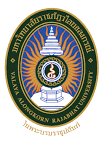The Academic Leadership of School Administrators
Keywords:
Leadership, Leader's role, Academic, Educational InstitutionsAbstract
This article presents the academic leadership of school administrators. The objective is to present the academic leadership composition of school administrators. consists of 6 aspects as follows:
1.The vision setting. This refers to how the school administrators set the participatory school’s academic goals and assess the teacher’s needs.
2. The internal supervision. This refers to how the school administrators visit the classrooms in order to provide the teachers with guidance and supports for the improvement of teaching quality.
3. The promotion of academic atmosphere. This refers to how the administrators cooperate with the colleagues on creating atmosphere in school that promote the learning of the pupils, create the learning culture and good relationship among the teachers and the students.
4. The curriculum development. This refers to how the administrators make the school’s curriculum that is appropriate the current and changing situation.
5. Professional development. This refers to how school administrators promote and improve the quality of teachers according to professional standards and the Teachers Professional Advancement.
6. Teaching and learning management. This refers to how school administrators collaborate with the teachers on determining the ways to improve learning.
References
กระทรวงศึกษาธิการ. (2553). พระราชบัญญัติการศึกษาแห่งชาติ พ.ศ. 2542 และที่แก้ไขเพิ่มเติม (ฉบับที่ 3) พ.ศ. 2545. กรุงเทพฯ: โรงพิมพ์คุรุสภาลาดพร้าว.
คุรุสภา. (2556). สาระความรู้สมรรถนะและประสบการณ์วิชาชีพของผู้ประกอบวิชาชีพครูผู้บริหารสถานศึกษา ผู้บริหารการศึกษาและศึกษานิเทศก์ตาม ข้อบังคับคุรุสภาว่าด้วยมาตรฐานวิชาชีพ. กรุงเทพฯ: คุรุสภา.
จุฑามาศ อินนามเพ็ง. (2552). ภาวะผู้นำทางวิชาการของผู้บริหารและครูผู้สอนที่ส่งผลต่อความเป็นองค์การแห่งการเรียนรู้ของโรงเรียน สังกัดสำนักงานเขตพื้นที่การศึกษานครพนม เขต 2. [วิทยานิพนธ์ครุศาสตรมหาบัณฑิต สาขาบริหารการศึกษา]. มหาวิทยาลัยราชภัฏสกลนคร.
ชฎากาญจน์ เจริญชนม์. (2553). ภาวะผู้นำทางวิชาการที่มีต่อประสิทธิผลของโรงเรียน สังกัดสำนักงานเขตพื้นที่การศึกษาขอนแก่น เขต 1. [วิทยานิพนธ์การศึกษามหาบัณฑิต สาขาการบริหารการศึกษา]. มหาวิทยาลัยขอนแก่น.
ธวัช บุญยมณี. (2550). ภาวะผู้นำและการเปลี่ยนแปลง. กรุงเทพฯ: โอเดียนสโตร์.
ไพฑูรย์ สินลารัตน์. (2554). CCPR โมเดลกระบวนทัศน์ใหม่ของผู้นำเชิงสร้างสรรค์และผลิตภาพ. กรุงเทพฯ: โรงพิมพ์แห่งจุฬาลงกรณ์มหาวิทยาลัย.
ไพฑูรย์ สินลารัตน์. (2557). การเรียนรู้สู่อนาคตความท้าทายในศตวรรษที่ 21. กรุงเทพฯ: สมาคมวิจัยสถาบันและพัฒนาอุดมศึกษา มหาวิทยาลัยธุรกิจบัณฑิตย์.
ภารดี อนันต์นาวี. (2555). หลักการแนวคิดทฤษฎีทางการบริหารการศึกษา. ชลบุรี: มนตรีจำกัด.
วีรชาติ วิลาศรี. (2550). ภาวะผู้นำทางวิชาการของผู้บริหารสถานศึกษาสังกัดสำนักงานเขตพื้นที่การศึกษาชัยภูมิ เขต 2. [วิทยานิพนธ์ครุศาสตรมหาบัณฑิต สาขาการบริหารการศึกษา]. มหาวิทยาลัยราชภัฏสกลนคร.
สิร์รานี วสุภัทร. (2551). ภาวะผู้นำทางวิชาการและสมรรถนะของผู้บริหารสถานศึกษาที่ส่งผลต่อความสำเร็จต่อการบริหารโดยใช้โรงเรียนเป็นฐาน. การศึกษาดุษฎีบัณฑิต สาขาวิชาการบริหารการศึกษา มหาวิทยาลัยเกษตรศาสตร์.
สุขฤทัย จันทร์ทรงกลด. (2558). ภาวะผู้นำทางวิชาการของผู้บริหารสถานศึกษาในจังหวัดจันทบุรี สังกัดสำนักงานเขตพื้นที่การศึกษามัธยมศึกษาเขต 17. [วิทยานิพนธ์การศึกษามหาบัณฑิต สาขาวิชาบริหารการศึกษา] มหาวิทยาลัยบูรพา.
อัจฉรา นิยมาภา. (2557). แนวทางการพัฒนาภาวะผู้นำทางวิชาการของผู้บริหารสถานศึกษาสังกัดสำนักงานคณะกรรมการการศึกษาขั้นพื้นฐาน. กรุงเทพฯ: โรงพิมพ์มหาวิทยาลัยเกษตรศาสตร์.
อัจฉรา นิยมาภา. (2561). ภาวะผู้นำทางวิชาการศักยภาพผู้บริหารยุคใหม่. กรุงเทพฯ: วิสต้า อินเตอร์ปริ้น.
Davis, G., & Thomas, M. (1989). Effective school and effective teacher. Boston: Allyn and Bacon.
Dubrin, A. (2010). The Principles of Leadership. Toronto: Houghton Mifflin Company.
Glickman, C. (2001). Supervision and instructional leadership a developmental approach. Boston: Pearson.
Hallinger, J. S., & Murphy,S.L. (1985). Workstress and social support. Massachusetts: Addison-Wesley.
McEwan, E. K. (2003). Seven steps to effective instructional leadership. California: Macmillan.
Mondy, E. C. & Noe, R. W. (1996). Human Resqurce Management. New York: Prentice Hall.
Mulder, P. (2019). Benne and Sheats Group Roles: 26 Powerful Group Roles. Retrieved 20 January 2023. from Toolshero: https://www.Toolshero.com/leadership/benne-sheats-group-roles
Weller, L. D. (1999). Quality madid school leadership. Georgia: Technomic.



 Guidelines for Manuscript Preparation
Guidelines for Manuscript Preparation




